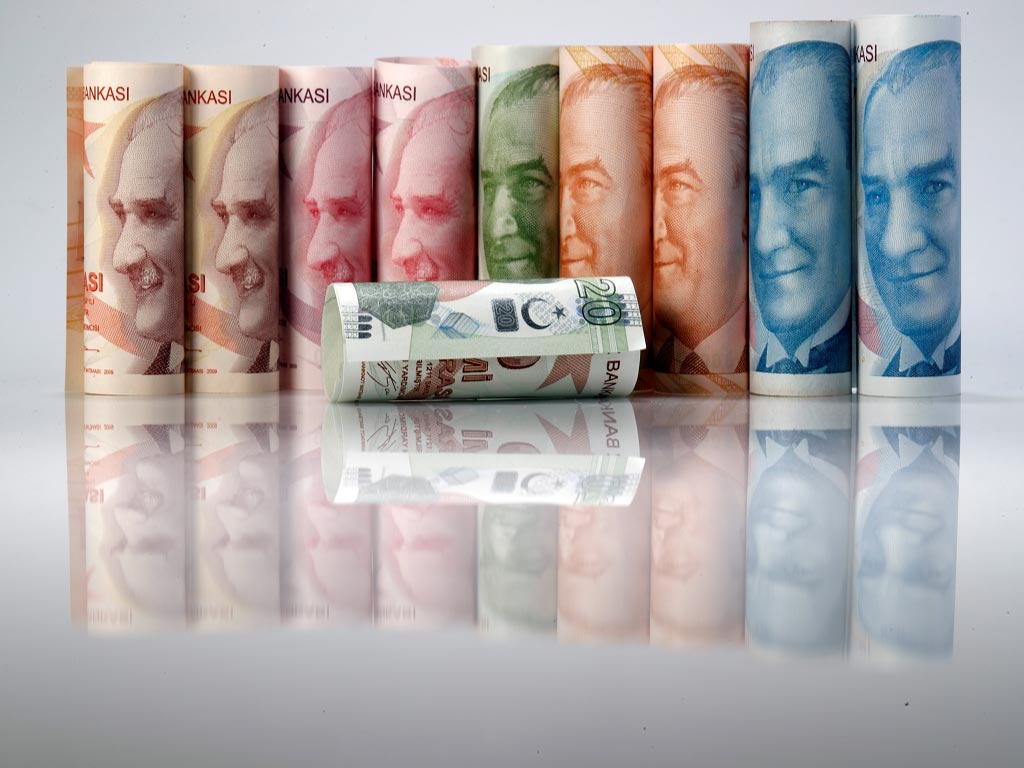 ISTANBUL: Turkish President Tayyip Erdogan's fiery anti-U.S. rhetoric helped spark a currency collapse in 2018 that plunged his country into recession.
ISTANBUL: Turkish President Tayyip Erdogan's fiery anti-U.S. rhetoric helped spark a currency collapse in 2018 that plunged his country into recession.
He had avoided a repeat so far this year but last Friday, during a break from pre-election rallies, Erdogan said U.S. President Donald Trump's move to recognise Israeli sovereignty over the occupied Golan Heights risked a regional crisis.
The Turkish lira immediately began its worst one-day drop since reaching a record low against the dollar last August. A week before local elections, the lira has swung wildly and companies have lost $11 billion of their market value.
Investors fear another punishing diplomatic fight with the United States could deepen and extend Turkey's recession well into this year and even beyond. Beyond the risk of further economic sanctions, a collapse in relations could deter foreign investors and hit Western tourism.
The government blamed U.S. and other Western speculators for the lira's fall and took steps to withhold liquidity from foreign-exchange markets, tactics that some economists say echoed its scatter-shot handling of the economy last year.
"Erdogan is improvising day by day and lacks a game plan...so the problems in Turkey can cascade," said Nihat Bulent Gultekin, a former governor of Turkey's central bank.
Turkey's membership of the North Atlantic Treaty Organization (NATO) made it an important U.S. ally countering the Soviet Union and when Erdogan came to power in 2003 the United States held up Turkey as proof that Islam and democracy could co-exist.
But relations later soured over U.S. concerns that Erdogan was taking Turkey on an increasingly autocratic course.
Last year Washington imposed sanctions and trade tariffs on Ankara over the detention of a Christian U.S. pastor who was later released. Now the two NATO members are locked in a standoff over Turkey's plans to buy an S-400 missile defence system from outsider Russia.
U.S. officials have said patience is wearing thin ahead of a Sunday deadline for Turkey to instead buy a U.S. Patriot shield acceptable to Washington and others in NATO.
That sets the stage for more sanctions that could batter a Turkish economy that in the fourth quarter logged its worse contraction in nearly a decade.
'NO CLEAR PATH TO DE-ESCALATION'
Turkish companies are vulnerable to the declining confidence of foreign investors. Their foreign currency deficit was nearly $200 billion at the end of 2018.
A more decisive drop in the lira could balloon banks' non-performing loans that were already expected to double this year.
In turn, a wave of bankruptcies would boost unemployment from more than 13 percent and spell trouble for Turks already struggling to afford basic goods after food inflation reached 29 percent in February.
Sources said the government ordered Turkish banks this week to withhold lira liquidity from a London swap market until after Sunday's local elections. They are being seen as a referendum on Erdogan's rule in which his AK Party (AKP) could lose control of major cities.
Traders have started to question economists' and government that the recession would end by around mid-year.
Confidence could rapidly disappear if the cash reserves at Turkey's central bank slip to levels foreign investors deem too low to roll over foreign loans.
"This is an even more important escalation than what we witnessed last year with its impact on the Turkish economy because last time Turkey had (U.S. pastor Andrew) Brunson and, with his release, it was possible to de-escalate," said Sinan Ulgen, Istanbul-based visiting scholar at Carnegie Europe in Brussels.
"Whereas here if the S-400 is indeed delivered to Turkey there is no clear path to de-escalation."
ELECTION RHETORIC
Even if there is a thaw on missile defence, there are other contentious issues between Ankara and Washington; military policy in Syria, support for different leaders in Venezuela; the U.S. jailing in New York of a Turkish bank executive in an Iran sanctions-busting case; the trial that began this week in Istanbul of a U.S. consulate employee and the disagreement over the Golan Heights. For a factbox of strained ties, see:
Addressing the Golan issue on Thursday, Erdogan called Trump a "bully".
But relations could nevertheless improve if Erdogan softens his rhetoric after the elections, especially if he wins a majority of popular support.
In Ankara, where Erdogan has focused his pre-election rallies, retired truck driver Gultekin Koctas remembers what set off last year's crisis.
"The dollar rose last year and they said it was because of the pastor from the United States. Trump...sent a tweet and the dollar rose two-fold in a night," he said.
"I voted for the AKP five times, but I don't plan on (it) this time because of the dollar and prices of vegetables and fruits."
























Comments
Comments are closed.